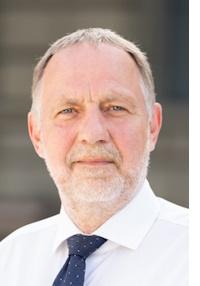
Detlef Günther (ETH Zurich, Switzerland)
Detlef Günther is full professor for Trace Element and Micro Analysis at the Department for Chemistry and Applied Biosciences (D-CHAB) at ETH Zurich. He received his Ph.D. from the Martin Luther University Halle-Wittenberg (Germany) and joined the Memorial University St. John’s (Canada) as Postdoctoral Fellow before joining ETH in 1995. His research in the field of Analytical Chemistry is focused on instrument and method development for trace and ultra trace element analysis and isotope ratio determinations using high spatial resolution laser ablation and inductively coupled plasma mass spectrometry. He has been the chair of the D-CHAB from 2010-2012. Furthermore, he served as Vice President for Research and Corporate Relation at ETH (2015-2020) and Vice President for Research (2020-2022) and has been responsible for research funding (national and international), platforms and research centers. In 2014 he became a member of the German national academy of science Leopoldina.
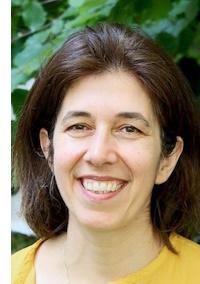
Gunda Köllensperger (University of Vienna, Austria)
Prof. Dr. Gunda Koellensperger holds the chair for Analytical Chemistry at the University Vienna. Currently she is vice dean of the Faculty of Chemistry and vice president of the Austrian Society of Analytical Chemistry. She is an expert in methods based on mass spectrometry, multidimensional chromatography and stable isotopes with more than 190 publications. Her research envisages the development of innovative omics-type analytical tools in the interdisciplinary fields of metallomics and metabolomics research. In metallomics, the group develops quantitative high throughput methods for ultratrace analysis of elements and elemental species in biological samples. A major focus is on single cell analysis. By integrating mass cytometry, the ultimate goal is to assess the single cell ionome together with cell functionality/cell state.
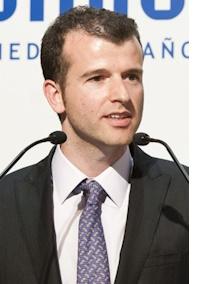
Jorge Pisonero (University of Oviedo, Spain)
Jorge Pisonero is a full professor of Physics (since 2021) at University of Oviedo (Spain), from which he obtained his PhD degree (November 2004) working on glow discharge spectroscopy at Prof. Sanz-Medel's research group. After his PhD, he was awarded a 2-year Marie Curie Intra-European Fellowship for a postdoctoral stay at ETH (Switzerland) to work on laser ablation-based techniques at Prof. Günther's research group. Afterwards, Jorge obtained the prestigious “Ramon and Cajal” research contract and went back to University of Oviedo, where in collaboration with Dr. Nerea Bordel, he established the Laser and Plasma Spectroscopy Research Group. His current research interests are focused on fundamentals and applications of atmospheric and low pressure GD spectroscopy, LIBS and LA-ICP-MS. Moreover, Jorge is co-author of more than 100 scientific articles and several book chapters.
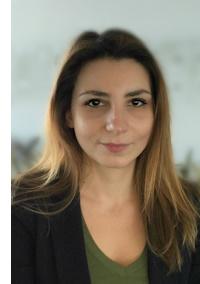
Vassilia Zorba (Lawrence Berkeley National Laboratory, USA)
Dr. Vassilia Zorba is a Physicist Senior Scientist and Group Leader for the Laser Technologies Group at the Lawrence Berkeley National Laboratory in Berkeley CA. She is also an Associate Adjunct Professor in the Department of Mechanical Engineering of the University of California, Berkeley. Her research interests include ultrafast laser-material interactions, non-linear optics, remote sensing, laser-induced plasma chemistry, and laser ablation-based chemical analysis in electrochemical energy storage, with emphasis on next-generation Li-ion batteries. Her work also focuses on high-throughput materials discovery through femtosecond laser processing and biomimetic material functionalization. Dr. Zorba is a Fellow of the Royal Society of Chemistry. Her credits include 90 publications in peer-reviewed journals, 60 invited talks and a 2011 R&D 100 Technology Award.
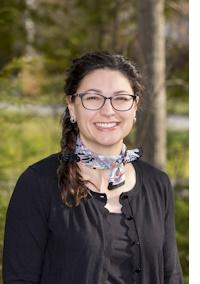
Alicia Cruz-Uribe (The University of Maine, USA)
Dr. Alicia Cruz-Uribe is the Edward Sturgis Grew Associate Professor of Petrology and Mineralogy at the University of Maine. She studied at Dartmouth College (A.B), Northern Arizona University (M.S.), The Pennsylvania State University (Ph.D), and the Woods Hole Oceanographic Institution (Postdoc). Her research interests span the fields of solid Earth petrology, geochemistry, and geochronology, and recently she has pursued techniques more broadly within the field of plasma mass spectrometry. In particular, her current research focuses on utilizing tandem mass spectrometry and reaction cell chemistry for geochronologic and nuclear forensic applications in both single and multicollector LA-ICP-MS. She was the 2018 Young Scientist Awardee of the International Association of Geoanalysts, and is a current Distinguished Lecturer for the Association of Women Geoscientists. Dr. Cruz-Uribe is currently enjoying a sabbatical during the 2023-2024 academic year at Oak Ridge National Laboratory in the Chemical and Isotopic Mass Spectrometry group.
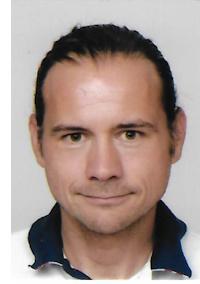
Martin Šala (National Institute of Chemistry Ljubljana, Slovenia)
Dr. Martin Šala is affiliated with the National Institute of Chemistry in Slovenia. He earned his MSC in Organic Chemistry and Biochemistry, followed by a PhD in Analytical Chemistry at the University of Ljubljana. Following his PhD, he was honored with a JSPS Fellowship for a postdoctoral tenure at Meisei University in Tokyo, Japan. His research during this period centered on a project exploring a novel MS ionization source, Li+ IAMS. Prior to joining the Institute, he dedicated time to the University of Pardubice, contributing to research in ion mobility MS. At present, his research pursuits primarily revolve around the fundamentals and applications of LA-ICP-MS, as well as the hyphenation of ICP-MS. Martin has co-authored over 100 scientific articles, showcasing his extensive contribution to the field.
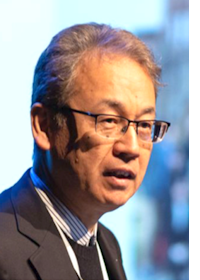
Takafumi Hirata (The University of Tokyo, Japan)
Takafumi Hirata is a full professor at Geochemical Research Center at The University of Tokyo. After obtaining a Ph.D. from The University of Tokyo, he moved on to Geological Survey of Japan to explore the use of ICP-MS to study age of and to determine trace elements in minerals and geological samples. This was followed by an EU postdoctoral fellowship in 1993-1994, where he joined the research group of Professor Robert W. Nesbitt at University of Southampton to study LA-ICP-MS. During his stay in the UK, he attended the 1st EWLA in 1994 at Nottingham and presented the application of LA-ICP-MS to U-Pb dating of rocks and minerals. He returned to Japan in 1994, where he became assistant professor at Tokyo Institute of Technology and established his own research group. He was then promoted to associate professor and to full professor at Kyoto University in 2009. His research in the field of analytical chemistry is focused on instrumental and method development for LA-ICP-MS. Recently, his research group developed a new atmospheric pressure ion source for organic mass spectrometer, aiming at simultaneous imaging analysis of both elements and molecules using LA sampling. He aims to transfer the LA technique, originally designed for spatially resolved elemental and isotopic geoscience applications, to open new doors in biomedical research.